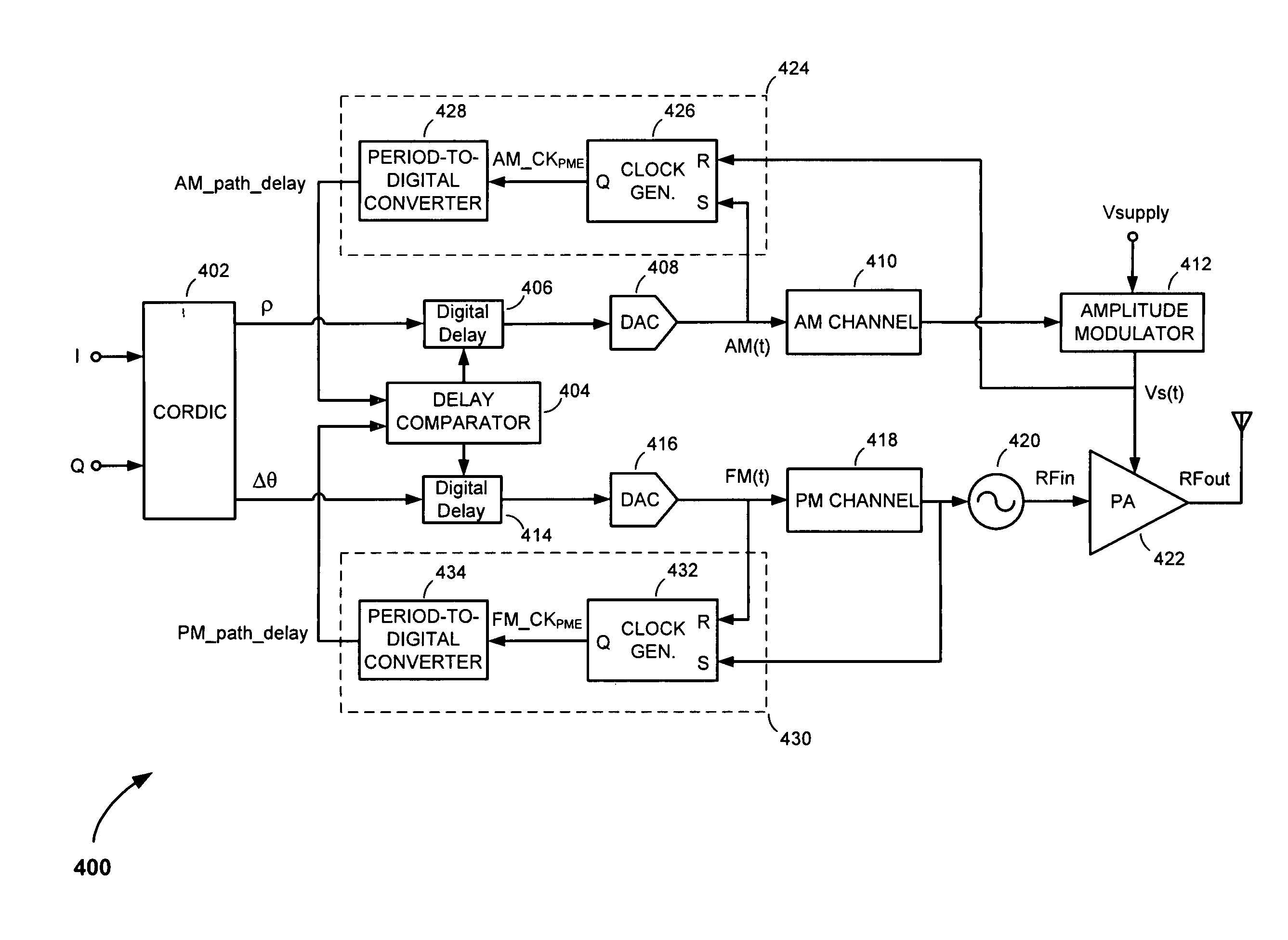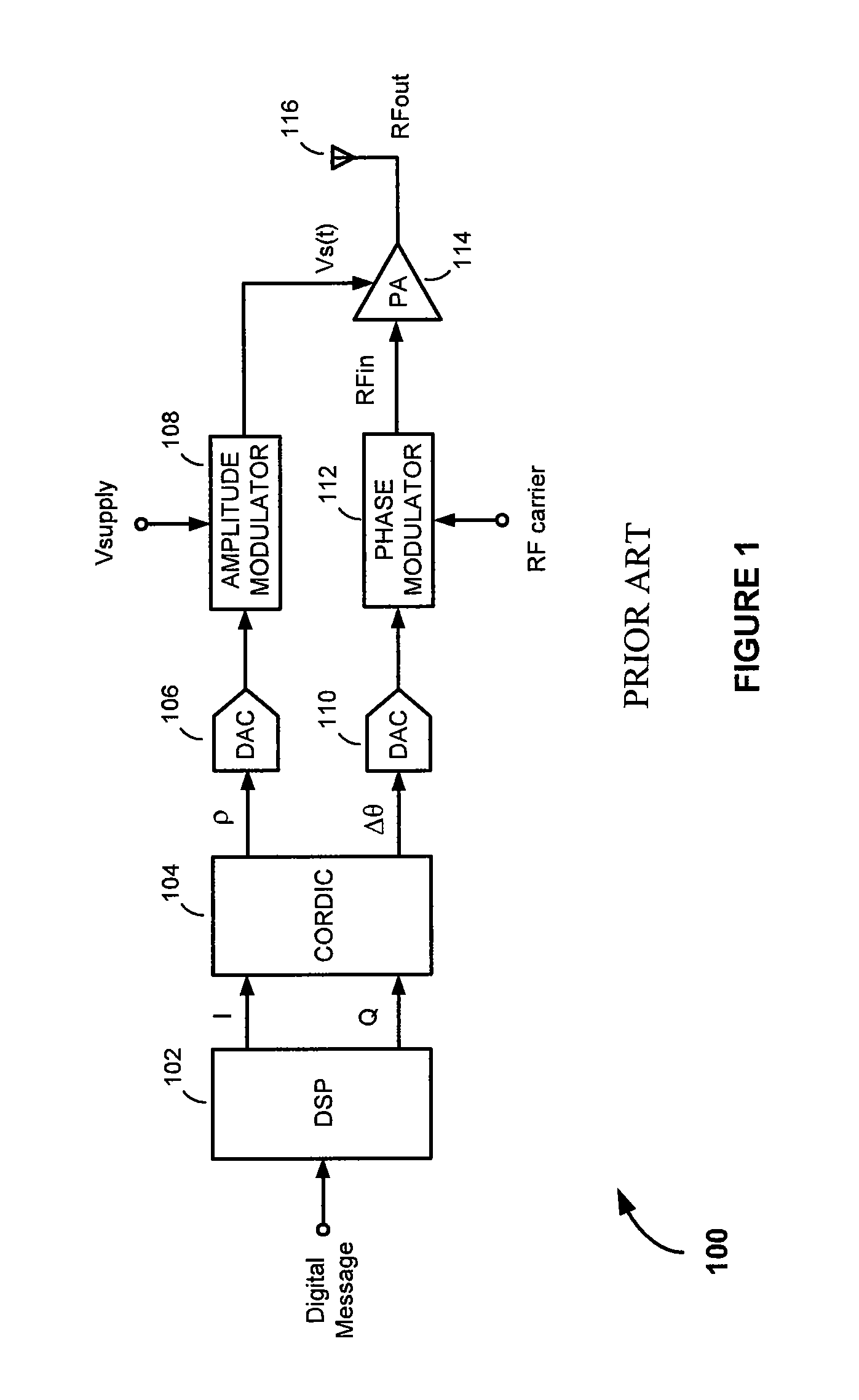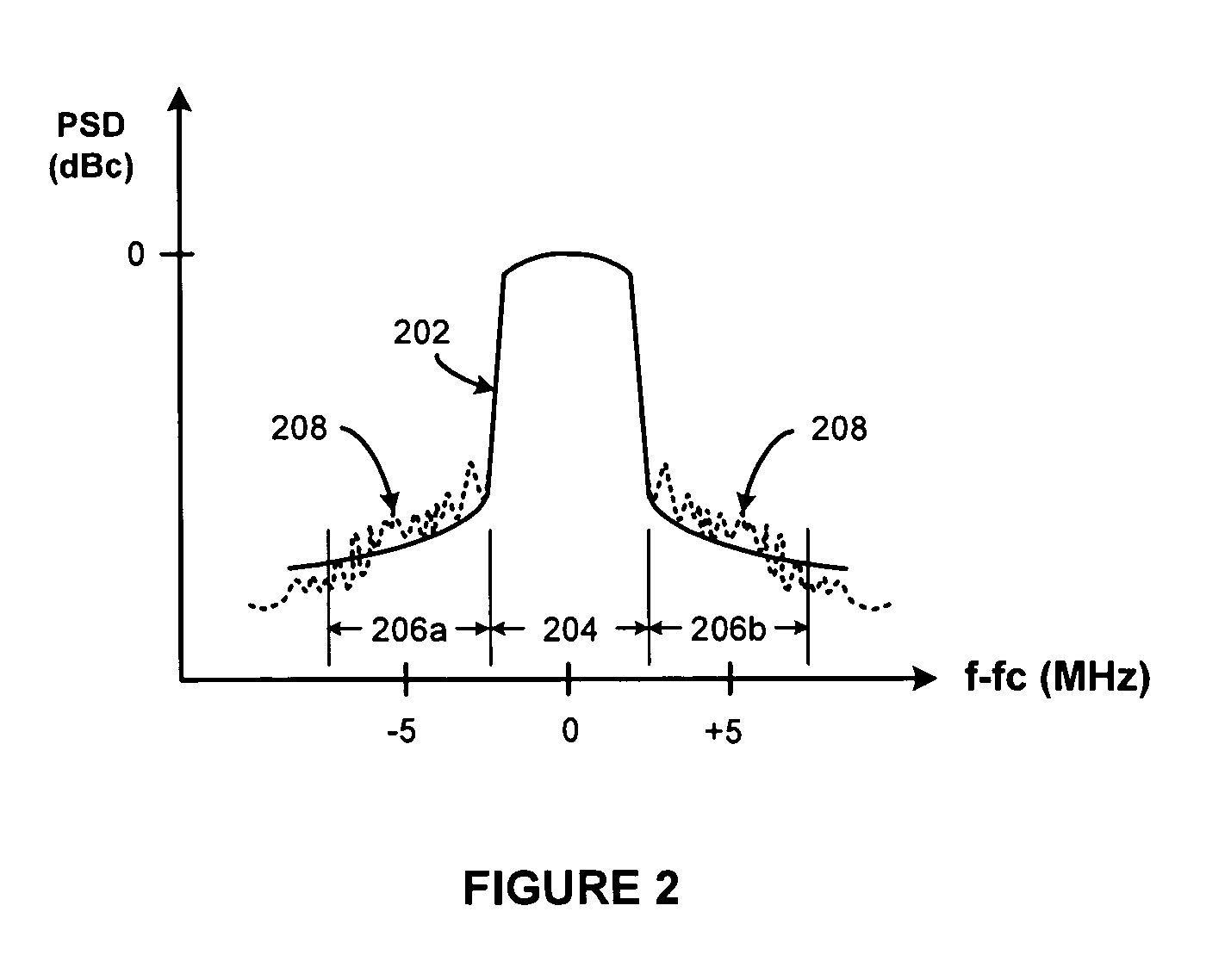Adaptive delay alignment in polar transmitters
a delay alignment and polar transmitter technology, applied in the field of polar transmitters, can solve the problems of reducing the modulation accuracy of the transmitter, affecting the performance of the transmitter, and the peaks of the non-constant envelope signal to be undetectedly clipped, so as to reduce the delay mismatch
- Summary
- Abstract
- Description
- Claims
- Application Information
AI Technical Summary
Benefits of technology
Problems solved by technology
Method used
Image
Examples
Embodiment Construction
[0031]The present invention is applicable to polar transmitter methods and apparatus configured to operate in accordance with nonconstant-envelope modulation schemes that produce nonconsant-envelope modulation signals having trajectories that pass through or close to the origin in the complex in-phase and quadrature phase (I-Q) signal plane, as illustrated in FIG. 3. For example, the invention is applicable to third generation Wideband Code Division Multiple Access (W-CDMA) cellular communication modulation schemes, orthogonal frequency-division multiple access (OFDMA) modulation schemes employed in wireless metropolitan area networks (WiMAX) and the soon to be deployed fourth generation Long Term Evolution (LTE) Universal Mobile Telecommunications System (UMTS) upgrade (i.e., High Speed OFDM Packet Access (HSOPA)), and other nonconstant-envelope modulation schemes producing signal trajectories passing through or close to the origin in the I-Q signal plane, particularly those noncon...
PUM
 Login to View More
Login to View More Abstract
Description
Claims
Application Information
 Login to View More
Login to View More - R&D
- Intellectual Property
- Life Sciences
- Materials
- Tech Scout
- Unparalleled Data Quality
- Higher Quality Content
- 60% Fewer Hallucinations
Browse by: Latest US Patents, China's latest patents, Technical Efficacy Thesaurus, Application Domain, Technology Topic, Popular Technical Reports.
© 2025 PatSnap. All rights reserved.Legal|Privacy policy|Modern Slavery Act Transparency Statement|Sitemap|About US| Contact US: help@patsnap.com



